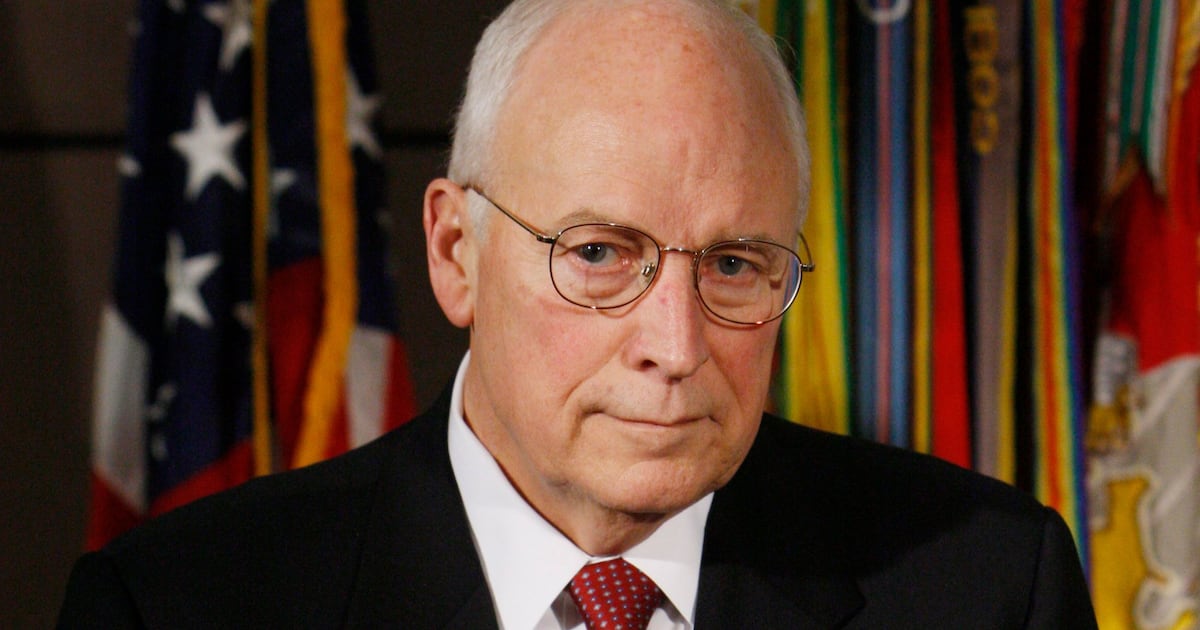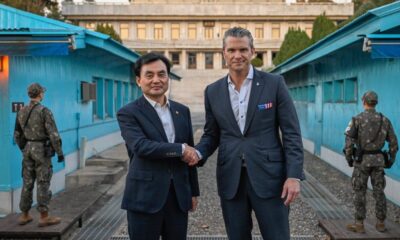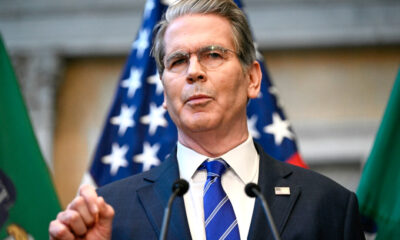Top Stories
Dick Cheney, Former VP and Iraq War Architect, Dies at 84

UPDATE: Dick Cheney, the influential former vice president who played a pivotal role in shaping U.S. foreign policy during the “war on terror,” has died at the age of 84, as confirmed by a statement from his family. Cheney, who served under President George W. Bush from 2001 to 2009, was a polarizing figure, known for his aggressive stance on Iraq and Afghanistan.
The news of Cheney’s death comes amid a backdrop of intense political division within the Republican Party, which he criticized in his later years. Despite his long-standing conservative credentials, Cheney became increasingly at odds with the party, especially under former President Donald Trump, whom he referred to as a “coward” and a significant threat to democracy.
Cheney’s passing marks the end of a controversial political era. He was known for his role in the September 11, 2001 attacks response, which dramatically reshaped U.S. military engagement globally. His aggressive push for the invasion of Iraq in 2003, based on claims of weapons of mass destruction, has been widely criticized as founded on flawed intelligence.
In a surprising turn in his final years, Cheney publicly endorsed Kamala Harris, a Democrat, in the upcoming 2024 presidential election, reflecting the profound shifts within the GOP since his tenure. This decision underscores his belief in prioritizing country over party allegiance.
Cheney’s health struggles began early in life, eventually leading to a heart transplant in 2012. He often spoke about how this procedure was “the gift of life,” allowing him to continue his work and political engagements even in retirement.
Born on January 30, 1941, in Lincoln, Nebraska, Cheney grew up in Wyoming, where he began his journey into politics. He initially served as a congressman before stepping into significant roles within the Nixon and Ford administrations, eventually becoming Secretary of Defense under George H.W. Bush.
Cheney’s legacy is marred by controversies surrounding the justification for the Iraq War, and his endorsement of harsh interrogation techniques has drawn significant backlash. However, he remained unapologetic, stating he would “do it again in a minute.”
His death is a poignant reminder of the lasting impact of his policies and the ongoing debates they have spurred in American politics. Cheney is survived by his wife, Lynne Cheney, his daughters, Liz and Mary Cheney, and seven grandchildren.
As the nation reflects on Cheney’s complex legacy, his passing is sure to reignite discussions about the decisions that reshaped U.S. foreign policy and their implications for the future.
This is a developing story. Further updates will follow as more information becomes available.
-

 World4 months ago
World4 months agoScientists Unearth Ancient Antarctic Ice to Unlock Climate Secrets
-

 Entertainment4 months ago
Entertainment4 months agoTrump and McCormick to Announce $70 Billion Energy Investments
-

 Lifestyle4 months ago
Lifestyle4 months agoTransLink Launches Food Truck Program to Boost Revenue in Vancouver
-

 Science4 months ago
Science4 months agoFour Astronauts Return to Earth After International Space Station Mission
-

 Technology2 months ago
Technology2 months agoApple Notes Enhances Functionality with Markdown Support in macOS 26
-

 Top Stories3 weeks ago
Top Stories3 weeks agoUrgent Update: Fatal Crash on Highway 99 Claims Life of Pitt Meadows Man
-

 Sports4 months ago
Sports4 months agoSearch Underway for Missing Hunter Amid Hokkaido Bear Emergency
-

 Politics3 months ago
Politics3 months agoUkrainian Tennis Star Elina Svitolina Faces Death Threats Online
-

 Politics4 months ago
Politics4 months agoCarney Engages First Nations Leaders at Development Law Summit
-

 Technology4 months ago
Technology4 months agoFrosthaven Launches Early Access on July 31, 2025
-

 Top Stories2 weeks ago
Top Stories2 weeks agoFamily Remembers Beverley Rowbotham 25 Years After Murder
-

 Top Stories5 days ago
Top Stories5 days agoBlake Snell’s Frustration Ignites Toronto Blue Jays Fan Fury





















